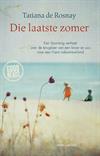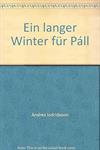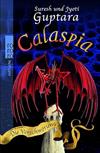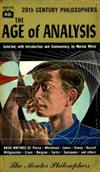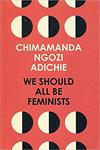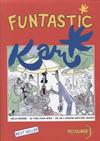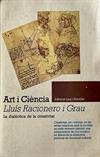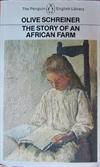
The Story of an African Farm
Registered by  maid-of-kent
maid-of-kent of Amstelveen, Noord-Holland Netherlands on 1/20/2014
of Amstelveen, Noord-Holland Netherlands on 1/20/2014
 This Book is Currently in the Wild!
This Book is Currently in the Wild!
 maid-of-kent
maid-of-kent of Amstelveen, Noord-Holland Netherlands on 1/20/2014
of Amstelveen, Noord-Holland Netherlands on 1/20/2014 This Book is Currently in the Wild!
This Book is Currently in the Wild!
2 journalers for this copy...
Journal Entry 1 by  maid-of-kent
maid-of-kent from Amstelveen, Noord-Holland Netherlands on Monday, January 20, 2014
from Amstelveen, Noord-Holland Netherlands on Monday, January 20, 2014
 maid-of-kent
maid-of-kent from Amstelveen, Noord-Holland Netherlands on Monday, January 20, 2014
from Amstelveen, Noord-Holland Netherlands on Monday, January 20, 2014
First published 1883 and hailed as a masterpiece of its time.
Journal Entry 2 by  maid-of-kent
maid-of-kent at Strandpaviljoen Zoomers in Castricum, Noord-Holland Netherlands on Saturday, July 4, 2015
at Strandpaviljoen Zoomers in Castricum, Noord-Holland Netherlands on Saturday, July 4, 2015
 maid-of-kent
maid-of-kent at Strandpaviljoen Zoomers in Castricum, Noord-Holland Netherlands on Saturday, July 4, 2015
at Strandpaviljoen Zoomers in Castricum, Noord-Holland Netherlands on Saturday, July 4, 2015
Released 8 yrs ago (7/5/2015 UTC) at Strandpaviljoen Zoomers in Castricum, Noord-Holland Netherlands
WILD RELEASE NOTES:
Hello! I’m glad you found this book! If you are new to BookCrossing, welcome! Please leave a journal entry letting me know this book is safe with you. You may remain anonymous. The book is yours to do with what you want, but please consider releasing the book when you are finished with it so it may continue its journey. If you choose to join BookCrossing, please consider using my name, maid-of-kent, as the member who referred you. Thanks and enjoy!
Hallo lezer, welkom op Bookcrossing!
Gefeliciteerd met je vondst van dit boek! Wat leuk dat je hier komt kijken.
Ik wens je veel plezier hier, en met je boek! Het zou leuk zijn als je laat weten waar je het boek gevonden hebt, wat je ervan vond, en wat je er later mee gaat doen.
Als je besluit lid te worden, zou ik het erg leuk vinden als je mijn naam (maid-of-kent) zou willen vermelden onder het kopje 'referring member', dat kom je tegen in het aanmeld-proces. Daar krijg ik niets bijzonders voor, maar is leuk voor mijn statistieken! Het is niet verplicht, maar wel leuk voor mij.
Veel plezier met lezen en loslaten!
Hallo lezer, welkom op Bookcrossing!
Gefeliciteerd met je vondst van dit boek! Wat leuk dat je hier komt kijken.
Ik wens je veel plezier hier, en met je boek! Het zou leuk zijn als je laat weten waar je het boek gevonden hebt, wat je ervan vond, en wat je er later mee gaat doen.
Als je besluit lid te worden, zou ik het erg leuk vinden als je mijn naam (maid-of-kent) zou willen vermelden onder het kopje 'referring member', dat kom je tegen in het aanmeld-proces. Daar krijg ik niets bijzonders voor, maar is leuk voor mijn statistieken! Het is niet verplicht, maar wel leuk voor mij.
Veel plezier met lezen en loslaten!
I bought a hardback copy of this book from the library in Dutch in 2008 and registered it. I think it must be the oldest registered book I have by now. Now I can pass that one on at last. This copy is smaller, so takes up about half the space on the bookshelves of the hardback, which is always a bonus. Hopefully I will finally get round to reading it before another 7 years have gone by.
My goodreads review, not entirely coherent, but I should be cooking dinner, so I shall leave it at this, for now at least.

Book 1 seems to be a fairly straightforward Victorian morality tale with a kindly old father, a saintly child, orphans, a wicked stepmother, a trickster stranger. But then book 2 comes along and everything is thrown on its head. First there is a discussion of a belief in religion being replaced by a belief in science and the study of nature. Then a mysterious stranger appears who tells an allegorical fairy story that sounds like an ancient British legend, but in more poetical tones than most:
“ ‘And the hunter cried:
‘ “Oh, you who have lived here so long, tell me, what is that great wild bird I have seen sailing in the blue? They would have me believe she is a dream; the shadow of my own head.
‘The old man smiled.
‘ “Her name is Truth. He who has once seen her never rests again. Till death he desires her.”
‘And the hunter cried:
“Oh, tell me where I might find her.”
‘But the old man said:
‘ “You have not suffered enough,” and went.
‘Then the hunter took from his breast the shuttle of Imagination, and wound on it the thread of his Wishes and all night he sat and wove a net.
‘In the morning he spread the golden net open on the ground, and into it he threw a few grain of credulity, which his father had left him, and which he kept in his breast-pocket.” (pp.160-161)
In fact, it reminds me of The Pilgrim’s Progress, of which I have only read a few pages.
Lyndalls preoccupations are also indicative of those of the time and probably particularly of Olive Schreiner herself. How could women achieve more equality? What was the role of religion as science revealed more facts about fossils and evolution became known? Were individuals defined by their place in life, their nationality or race? Waldo, likewise, is a great thinker, originally devoted to religious sentiment, but later turning to socialist ideas, but living in the wrong place to express them.
Lyndall the cynical. Talking to Waldo, she talks about how it is important to focus on what you are good at, what is possible, where you can make a difference. Waldo has become discouraged. saying
"when we lie and think, and think, we see that there is nothing worth doing. The universe is so large, and man is so small - ", but Lyndall replies, “But we must not think so far; it is madness, it is a disease. We know that no man’s work is great, and stands for ever. Moses is dead, and the prophets, and the books that our grandmothers fed on the mould is eating. Your poet and painter and actor, - before the shouts that applaud them have died their names grow strange, they are milestones that the world has passed. Men have set their mark on mankind for ever, as they thought; but time had washed it out as it has washed out mountains and continents.” (p.217)
This reflects the tale told to Waldo by the stranger, when he talked about a man’s work laying the foundation for future generations.
“We are sparks, we are shadows, we are pollen, which the next wind will carry away. We are dying already; it is all a dream.” (p.217)
As so often happens, there was an odd link between books I read back-to-back. In this case, both the New Zealander Janet Frame (in Naar het is-land and the South African Olive Schreiner in this book mention the diamond-like sap of the ice flower, the mesembryanthemum. (p.44)
Not only that, but this quotation echoes Janet Frame's words too:
“the old little dream how their words and lives are texts and studies to the generation that shall succeed them. Not what we are taught, but what we see, makes us, and the child gathers the food on which the adult feeds to the end.” (p.62)
One of the defining themes of this book is the contrast between religion and science, between education and belief:
“It is a question whether it were not better to be the shabbiest of fools, and know the way up the little stair of imagination to the land of dreams, than the wisest of men, who see nothing that the eyes do not show, and feel nothing that the hands do not touch.” (p.77)
The trickster Bonaparte Blenkins definitely comes down on the side of ignorance over education, with his philosophy on unknown things:
“Whenever you come into contact with any book, person, or opinion of which you absolutely comprehend nothing, declare that book, person, or opinion tone immoral. Bespattered it, vituperate against it, strongly insist that any man or woman harbouring it is a fool or a knave, or both. Carefully abstain from studying it. Do all that in you lies to annihilate that book, person, or opinion.” (p.112)
This seems to me to typify the mentality of far too many people nowadays; the online warriors on the side of religious fundamentalism, uneducated right-wingers, the followers of fake news, the most obvious example of whom is Donald Trump.
After everything changes, Waldo loses his faith and starts to apply himself to learning and mindless activity, building a dam. “We have thought we were utterly stupid, incapable of remembering anything, of learning anything. Now we find that all is easy. Has a new soul crept into this old body, that even our intellectual faculties are changed? We marvel; not perceiving that what a man expends in prayer and ecstasy he cannot have over for acquiring knowledge. You never shed a tear or create a beautiful image, or quiver with emotion, but you pay for it at the practical, calculating end of your nature. You have just so much force: when the one channel runs over the other runs dry.” (p.151)
Just before reading this, I read a review of Leaving the Witness: Exiting a Religion and Finding a Life, the autobiography of a woman leaving the Jehovahs Witnesses. I also read an article similar to this one about how the isolation insisted on by some religious groups, together with forced meetings to try to recruit new believers, feeds into the feeling that they are special, the only ones who are 'saved': if every time you knock on a door or approach strangers on the street, you face rejection, then the 'family' of your religious group begins to feel the only safe place. Books written by those who have left such groups clearly describe how, even for those who leave, the outside world seems not only hostile, but it is difficult to shake off everything you grew up thinking was true. Waldo's insight into the way he was brought up clearly voices this:
“From our earliest hour we have been taught that the thought of the heart, the shaping of the rain-cloud, the amount of wool that grows on a sheep’s back, the length of a drought, and the growing of the corn, depend on nothing that moves immutable; but on the changeable will of a changeable being, whom our prayers can alter. [...] When a soul breaks free from the arms of superstition, bits of the claws and talons break themselves off in him. It is not the work of a day to squeeze them out.” (p.150)
---------------------------
To be added:
smouse = peddler or trader (South Africa)
dimity curtain = ?
p.192 Napoleon.... see photo
p.298 - nature- see photo

Book 1 seems to be a fairly straightforward Victorian morality tale with a kindly old father, a saintly child, orphans, a wicked stepmother, a trickster stranger. But then book 2 comes along and everything is thrown on its head. First there is a discussion of a belief in religion being replaced by a belief in science and the study of nature. Then a mysterious stranger appears who tells an allegorical fairy story that sounds like an ancient British legend, but in more poetical tones than most:
“ ‘And the hunter cried:
‘ “Oh, you who have lived here so long, tell me, what is that great wild bird I have seen sailing in the blue? They would have me believe she is a dream; the shadow of my own head.
‘The old man smiled.
‘ “Her name is Truth. He who has once seen her never rests again. Till death he desires her.”
‘And the hunter cried:
“Oh, tell me where I might find her.”
‘But the old man said:
‘ “You have not suffered enough,” and went.
‘Then the hunter took from his breast the shuttle of Imagination, and wound on it the thread of his Wishes and all night he sat and wove a net.
‘In the morning he spread the golden net open on the ground, and into it he threw a few grain of credulity, which his father had left him, and which he kept in his breast-pocket.” (pp.160-161)
In fact, it reminds me of The Pilgrim’s Progress, of which I have only read a few pages.
Lyndalls preoccupations are also indicative of those of the time and probably particularly of Olive Schreiner herself. How could women achieve more equality? What was the role of religion as science revealed more facts about fossils and evolution became known? Were individuals defined by their place in life, their nationality or race? Waldo, likewise, is a great thinker, originally devoted to religious sentiment, but later turning to socialist ideas, but living in the wrong place to express them.
Lyndall the cynical. Talking to Waldo, she talks about how it is important to focus on what you are good at, what is possible, where you can make a difference. Waldo has become discouraged. saying
"when we lie and think, and think, we see that there is nothing worth doing. The universe is so large, and man is so small - ", but Lyndall replies, “But we must not think so far; it is madness, it is a disease. We know that no man’s work is great, and stands for ever. Moses is dead, and the prophets, and the books that our grandmothers fed on the mould is eating. Your poet and painter and actor, - before the shouts that applaud them have died their names grow strange, they are milestones that the world has passed. Men have set their mark on mankind for ever, as they thought; but time had washed it out as it has washed out mountains and continents.” (p.217)
This reflects the tale told to Waldo by the stranger, when he talked about a man’s work laying the foundation for future generations.
“We are sparks, we are shadows, we are pollen, which the next wind will carry away. We are dying already; it is all a dream.” (p.217)
As so often happens, there was an odd link between books I read back-to-back. In this case, both the New Zealander Janet Frame (in Naar het is-land and the South African Olive Schreiner in this book mention the diamond-like sap of the ice flower, the mesembryanthemum. (p.44)
Not only that, but this quotation echoes Janet Frame's words too:
“the old little dream how their words and lives are texts and studies to the generation that shall succeed them. Not what we are taught, but what we see, makes us, and the child gathers the food on which the adult feeds to the end.” (p.62)
One of the defining themes of this book is the contrast between religion and science, between education and belief:
“It is a question whether it were not better to be the shabbiest of fools, and know the way up the little stair of imagination to the land of dreams, than the wisest of men, who see nothing that the eyes do not show, and feel nothing that the hands do not touch.” (p.77)
The trickster Bonaparte Blenkins definitely comes down on the side of ignorance over education, with his philosophy on unknown things:
“Whenever you come into contact with any book, person, or opinion of which you absolutely comprehend nothing, declare that book, person, or opinion tone immoral. Bespattered it, vituperate against it, strongly insist that any man or woman harbouring it is a fool or a knave, or both. Carefully abstain from studying it. Do all that in you lies to annihilate that book, person, or opinion.” (p.112)
This seems to me to typify the mentality of far too many people nowadays; the online warriors on the side of religious fundamentalism, uneducated right-wingers, the followers of fake news, the most obvious example of whom is Donald Trump.
After everything changes, Waldo loses his faith and starts to apply himself to learning and mindless activity, building a dam. “We have thought we were utterly stupid, incapable of remembering anything, of learning anything. Now we find that all is easy. Has a new soul crept into this old body, that even our intellectual faculties are changed? We marvel; not perceiving that what a man expends in prayer and ecstasy he cannot have over for acquiring knowledge. You never shed a tear or create a beautiful image, or quiver with emotion, but you pay for it at the practical, calculating end of your nature. You have just so much force: when the one channel runs over the other runs dry.” (p.151)
Just before reading this, I read a review of Leaving the Witness: Exiting a Religion and Finding a Life, the autobiography of a woman leaving the Jehovahs Witnesses. I also read an article similar to this one about how the isolation insisted on by some religious groups, together with forced meetings to try to recruit new believers, feeds into the feeling that they are special, the only ones who are 'saved': if every time you knock on a door or approach strangers on the street, you face rejection, then the 'family' of your religious group begins to feel the only safe place. Books written by those who have left such groups clearly describe how, even for those who leave, the outside world seems not only hostile, but it is difficult to shake off everything you grew up thinking was true. Waldo's insight into the way he was brought up clearly voices this:
“From our earliest hour we have been taught that the thought of the heart, the shaping of the rain-cloud, the amount of wool that grows on a sheep’s back, the length of a drought, and the growing of the corn, depend on nothing that moves immutable; but on the changeable will of a changeable being, whom our prayers can alter. [...] When a soul breaks free from the arms of superstition, bits of the claws and talons break themselves off in him. It is not the work of a day to squeeze them out.” (p.150)
---------------------------
To be added:
smouse = peddler or trader (South Africa)
dimity curtain = ?
p.192 Napoleon.... see photo
p.298 - nature- see photo
Journal Entry 5 by bookguide at Coffee Plaza Westerpark in Amsterdam, Noord-Holland Netherlands on Saturday, January 18, 2020
Released 4 yrs ago (1/18/2020 UTC) at Coffee Plaza Westerpark in Amsterdam, Noord-Holland Netherlands
WILD RELEASE NOTES:
This book has been released as part of the following BookCrossing challenges:
- The Ultimate Challenge - read and release books, with extra points for a monthly theme
- Reduce Mount TBR (To Be Read) - read and release books on the TBR list since before the end of the previous year.
- 666 country reading challenge.
- The Ultimate Challenge - read and release books, with extra points for a monthly theme
- Reduce Mount TBR (To Be Read) - read and release books on the TBR list since before the end of the previous year.
- 666 country reading challenge.
